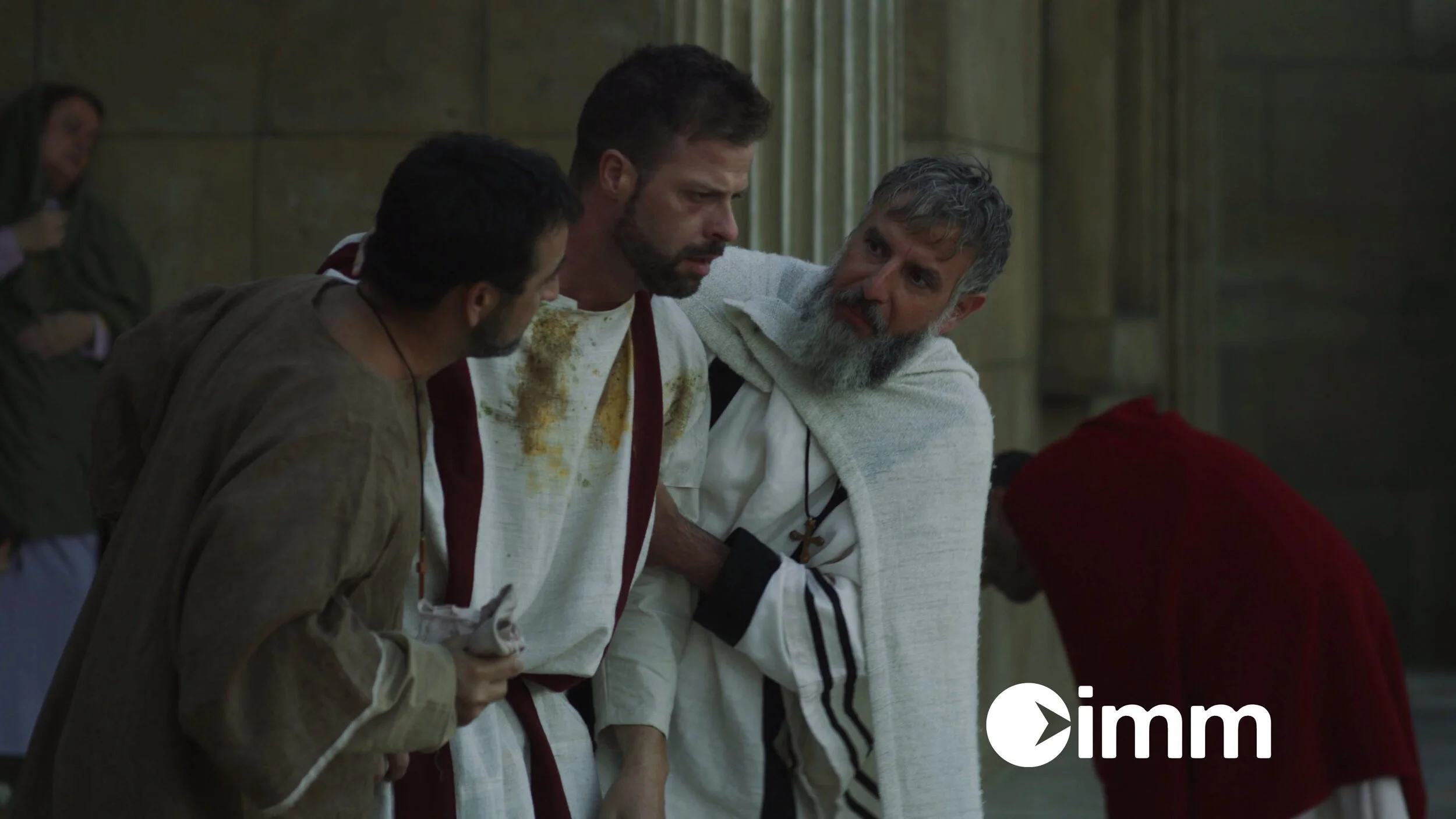The other day, we had a devotional time here at IMM where we talked about Bible characters and how their stories are told. I thought it was a really interesting discussion. I may be biased because the topic was my idea, but I think everyone at IMM values stories! One of my favorite parts of working here is getting to tell stories.
Part of our discussion was how different biblical storytelling and character building are from modern storytelling and character building. In Bible stories, we usually know what characters do, but not what they’re thinking or what they want. This can make it hard to feel connected to the characters. Sometimes you read a confusing story in the Bible and are left wondering what you were supposed to learn or get out of it.
Part of the problem is that we read the Bible more like a moral instruction manual than a story. Even though Bible characters are not black and white, we try to fit them into those categories: David good, Saul bad. But in a good book or movie, we don’t expect the characters to be that 2-D. We want characters and stories that move us, provoke us to think, inspire us, or challenge us! We know that people aren’t black and white, all good or all evil. So yes, this challenges us when we read the Bible like it’s an instruction manual instead of a story, but the challenge is good for us. It engages our minds to think through what these characters’ motivations or thoughts might have been and it empowers us to know why we believe what we believe.
Similarly, people in real life aren’t black and white. This can make them hard to love. If they were all bad, we would never trust them and therefore never be hurt by them. If they were all good, they would never hurt us. But people are confusing. They can make us feel loved one moment, and then they can mess up, leaving us to feel betrayed or discouraged. They come, they go. They give and they take.
Despite all this, Jesus was the ultimate people person. I’m not saying he had an extroverted personality or that he was a social butterfly, but no one loved people better than Jesus did. No one knew or understood people better than Jesus did. He didn’t spend his time building an empire or even a congregation, but we do see him taking the time to talk to people and get to know them. When I say “get to know,” the reality is that he knew each of their stories already. And yet we still see Jesus asking questions and pausing to listen to people before he changed their lives.
IMM cares about people too, and it shows from the inside out. Our leadership does an intentional job of making sure no one feels taken for granted or unimportant. Not only do we each take turns doing the honorable jobs of leading weekly prayer and devotionals, but we also pass around the less honorable (and less fun) job of taking the trash and recyclables out at the end of the week. I’m really grateful for leadership that values every member of our team.
Of course, IMM’s outward focus is media, and we produce that media for people. People who don’t yet know Jesus are the reason we’re here. People with stories are our inspiration to keep creating. People with flaws are the ones we relate to and the ones we want to speak truth to. We love thinking about the struggles and triumphs of broken, beautiful people just like us, who find sweet relief in Jesus. That is why we work so hard to tell their stories and to tell them with excellence, keeping everything from costume details to dialogue as accurate and excellent as possible. That is why we put in months of production, post-production, and revisions. For people. No self-congratulating or profit could compare to the feeling of knowing that people are going to hear about the love, forgiveness, and redemption of Jesus.
People and story: two key components of what IMM does. We want to put Jesus on every screen because we want people to encounter Jesus and the story he wants to write for them.
We are so grateful for you supporting us through prayer and giving! Please keep praying with us as we work hard to bring the story of Jesus to people all over the world. Right now, you can pray for The Heritage Project, as it is distributed in English and undergoes translation into target languages. Pray for favor with technology, partners, and distribution. And if you love stories, you can also pray about serving with IMM. There are several ways you can join us--virtually or in-person. We would love for you to be a part of our story!

























